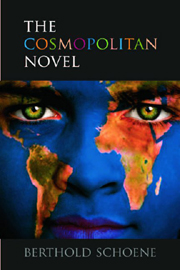Book contents
5 - Suburban Worlds: Rachel Cusk and Jon McGregor
from III - CREATING THE WORLD
Published online by Cambridge University Press: 12 September 2012
Summary
There is no imagining of the world that does not commence at home, that does not crystallise out of, and remain coloured by, at least some degree of local specificity. But what if the specificity of the place within which such an imagining of the world is grounded is peculiarly – even purposely – bland and non-descript, not so much reduced to uniformity and compliance by a process of global homogenisation as simply mirroring the agglomerative and self-compartmentalised way in which in the developed world many of us have become accustomed to living? The indifference and functional artifice of suburbia leave little room for either spontaneous or indeed operative assemblages of people into the people. Suburbia's pronounced lack of identity, coupled with communal anonymity and inertia, is precisely what defines its identity. Suburbanites tend to assume they have a lot in common with their neighbours, and that therefore their neighbourhood is right for them, but mostly this sense of affinity remains purely imagined, as not much social intercourse that would verify or contest the assumption ever occurs.
My final chapter is dedicated to a reading of Rachel Cusk's sixth novel, Arlington Park (2006), and Jon McGregor's debut, If Nobody Speaks of Remarkable Things (2002), both of which focus on representations of suburbia. Unequivocal in their contemporary Englishness, the novels differ markedly from McEwan's depiction of city life in Saturday, in which there is no mention of neighbours, while staying equally removed from the kind of village communities traditionally associated with portrayals of the English countryside.
- Type
- Chapter
- Information
- The Cosmopolitan Novel , pp. 154 - 179Publisher: Edinburgh University PressPrint publication year: 2009



